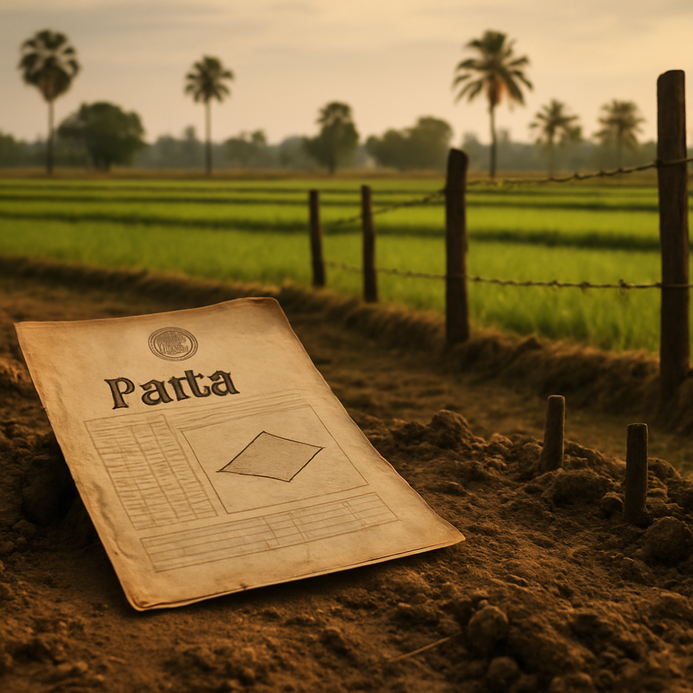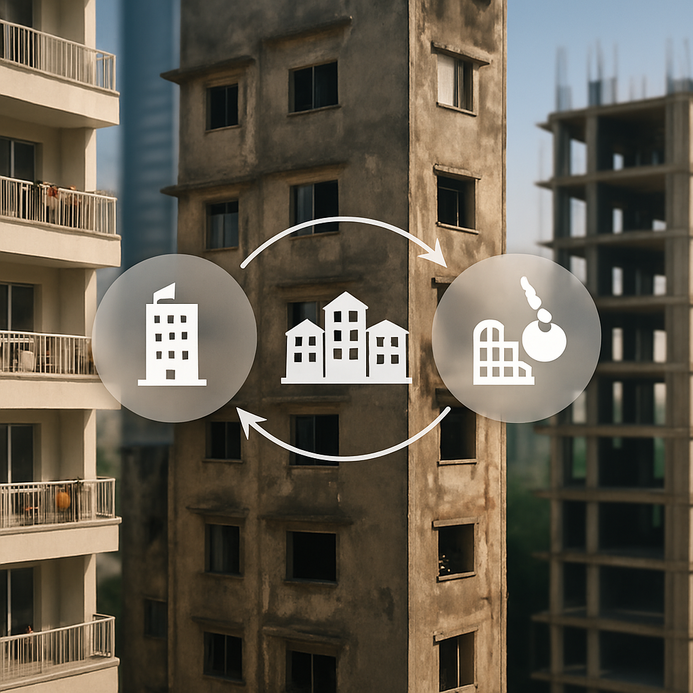Understanding Force Majeure in Builder-Buyer Agreements: A Simple Guide
Introduction to Force Majeure
So, what’s force majeure? It’s basically unforeseen stuff, like disasters that stops people from doing what they promised in a contract. The word comes from French, meaning “superior force.” In real estate agreements, it’s a big deal because timely delivery matters a lot.
When we talk about force majeure, we’re usually referring to things no one can control: natural disasters, wars, or even pandemics. These events can excuse a party from penalties if they can’t meet their obligations. And let’s be real, a solid understanding means both builders and buyers can dodge a hefty financial hit.
Here’s a quick recap of what can lead to force majeure:
| Event Type | Examples |
|---|---|
| Natural Disasters | Earthquakes, floods, hurricanes |
| Human Actions | Wars, strikes, terrorism |
| Health Crises | Pandemics, epidemics |
| Government Actions | New laws, import/export restrictions |
Having a clear force majeure clause in your agreements can make everything smoother. These clauses should outline exactly what counts as force majeure and what each party needs to do if something goes awry. If you’re curious about other related issues, check out key clauses in builder-buyer agreements or dive into the steps to buying property in Hyderabad. Knowing this stuff can seriously bolster your negotiating power.
Force Majeure in Builder-Buyer Agreements
“Force majeure” translates to “superior force”, you know, the kinda things that just happen and throw a wrench in everyone’s plans. In builder-buyer agreements, this clause is super important. It helps protect everyone involved. No one wants to be stuck liable because of some crazy circumstance, right?
Here’s a breakdown of common force majeure events in these types of contracts:
| Event Type | Examples |
|---|---|
| Natural Disasters | Earthquakes, floods, hurricanes |
| Man-Made Events | Riots, strikes, terrorism |
| Health Crises | Pandemics, epidemics |
Having a force majeure clause clears up who’s responsible when things go sideways. Usually, it’ll explain when performance is exempt and what steps need to happen next, like notifying the other party.
Communication is key here. Buyers need to make sure their agreements clearly state what counts as a force majeure event and the process to follow if one occurs. Clarity prevents confusion later on.
Common Events Triggering Force Majeure
So, what are the types of surprises that can trip up your contract? Basically, force majeure covers a bunch of unexpected events that can really throw timelines off. Knowing what these are, and how they can protect your interests, is key.
| Event Type | Description | Examples |
|---|---|---|
| Natural Disasters | Big events causing damage or halting work. | Earthquakes, floods, hurricanes |
| Pandemics | Health issues that affect labor and supply chains. | COVID-19, Ebola |
| Government Restrictions | Official actions that limit work or need site closures. | Lockdowns, trade restrictions |
| Strikes | Labor disputes causing stoppages. | Construction worker strikes |
| Supply Chain Disruptions | Issues stopping materials from arriving on time. | Gas shortages, transportation problems |
Natural disasters like floods or earthquakes often count as force majeure because, well, no one can control those things. Then you have pandemics, like COVID-19, which shook everything up, halting work and messing with resources. It’s crucial to include rules for these in your contracts (Source: Greenberg LLP).
Government actions, like lockdowns, can impede projects, letting builders and buyers pull the force majeure card. Strikes can do the same, messing with schedules and deadlines.
By understanding what force majeure entails, everyone can prepare better and respond more effectively. Clear language in contracts helps reduce risks and misunderstandings, emphasizing the importance of working with legal pros when drafting these clauses. Need more insight? Check out Thomson Reuters and Britannica for further help.
You might also find it useful to read about these agreements in our article on key clauses you must know.
Rights of Buyers Under Force Majeure
Alright, so why does force majeure matter for buyers in property agreements? Well, you’ve got to know your rights when something unforeseen happens like a natural disaster or a pandemic. Buyers have some solid protections in these cases.
1. Right to Delay in Performance
When a force majeure event hits, buyers can delay what they owe. This could mean pushing back payments or other commitments to the builder. The force majeure clause makes it clear that these events give both sides a break from immediate obligations.
| Force Majeure Event | Examples |
|---|---|
| Natural Disasters | Earthquakes, floods, hurricanes |
| Social Unrest | Civil disturbances, strikes |
| Government Actions | Lockdowns, travel bans |
2. Right to Recourse
If a builder can’t deliver the property on time ‘cause of a force majeure event, buyers can ask for extensions or even step away from the deal without penalties, depending on what’s in their agreement. Understanding the force majeure meaning puts buyers in a position to ensure their contracts have enough safeguards.
3. Right to Notifications
Buyers need to know about any force majeure events that impact their deals. Builders should be upfront about what’s going on, detailing the issues and how long they expect things to take. Clear communication here is crucial.
4. Legal Actions
Sometimes, if a force majeure event really throws a wrench in a buyer’s plans, they might need to consider legal steps. This even gives buyers a chance to check the builder’s obligations and possibly seek damages.
You may also want to read up on related topics like cancellation before agreement and force majeure clauses. Knowing these rights will boost a buyer’s confidence in dealing with unexpected stuff.
Understanding the force majeure clause is key for anyone stepping into a builder-buyer agreement. This clause helps pinpoint which unexpected events can relieve parties from fulfilling their commitments. The force majeure definition can vary, but it typically covers disasters, wars, or pandemics that mess with execution.
A thorough force majeure definition shows how unpredictable these situations can be, making it essential to keep legal documents clear and concise. Knowing what force majeure means equips both builders and buyers to make smart decisions, especially when it comes to possible delays or cancellations.
| Aspect of Force Majeure | Details |
|---|---|
| Definition | Unforeseen events preventing contract fulfillment |
| Common Examples | Natural disasters, war, political unrest |
| Implications | Delay of completion, extension of deadlines, potential termination |
Figuring out force majeure clauses means understanding the specific terms used. Everything should be well defined to keep disputes from becoming messy. A detailed look at these clauses can help both sides understand their rights and responsibilities when surprises pop up. To wrap it up, navigating builder-buyer agreements means carefully considering the force majeure clause to make sure everyone’s covered and treated fairly. For extra information, check out resources like “What is a Force Majeure Contract Clause?” on Investopedia and “Tips for Negotiating Force Majeure Clauses” on Axley.
Additionally, there are some good reads on Key Clauses You Must Know and The Ultimate Guide to Buying Your First Home in Hyderabad.
FAQ
1. What constitutes a force majeure event in builder-buyer agreements?
A force majeure event typically includes natural disasters, pandemics, government decisions, strikes, and any unforeseen circumstances that prevent a party from fulfilling their contractual obligations.
2. How does a force majeure clause protect buyers?
It allows buyers to delay payments or other obligations if a force majeure event occurs, protecting them from penalties for situations beyond their control.
3. What steps should buyers take if a force majeure event occurs?
Buyers should review their agreement to understand their rights and obligations, and communicate with the builder regarding the situation and anticipated delays.
4. Can a buyer terminate the agreement due to a force majeure event?
Yes, depending on the terms of their contract, buyers may be able to terminate the agreement or seek extensions without penalty if a force majeure event significantly delays performance.
5. Is a force majeure clause standard in all builder-buyer agreements?
While it’s common, the presence and specifics of a force majeure clause can vary. Buyers should always review their agreements to confirm and understand these clauses.













